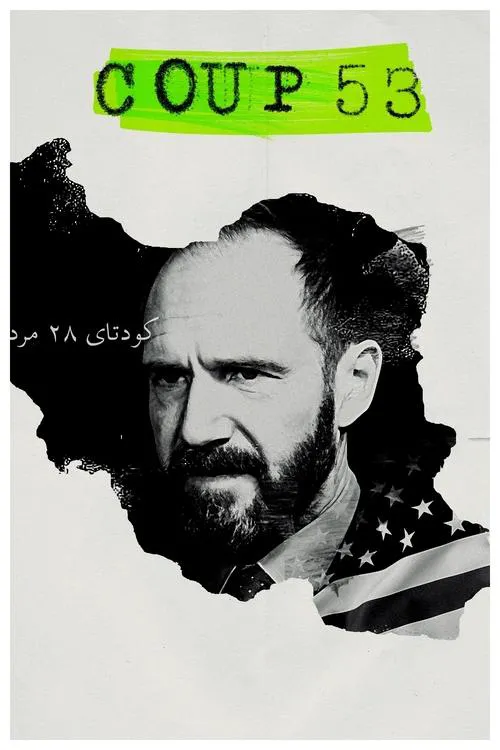Coup 53

Plot
It's the sweltering summer of 1953, and the city of Tehran, Iran, is on the brink of chaos. The once-peaceful streets now simmer with tension as a complex web of intrigue unfolds, threatening to destroy the fragile Democratic government that has recently come to power. The story revolves around the ill-fated Prime Minister, Mohammad Mosaddegh, and a group of Iranian conspirators who seek to undermine his authority with the blessing of the toppled monarch, Mohammad Reza Pahlavi. Against this backdrop of escalating tension, the CIA and the British MI6 conspire to orchestrate a coup that will overthrow Mosaddegh's government and restore the Shah to power. Coup 53, a gripping and thought-provoking documentary, delves into the events that transpired during those pivotal days in August 1953, shedding light on the machinations that ultimately led to the downfall of Iran's Democratic government. As the story begins, it becomes clear that the conspirators are driven by a desire for power and wealth. The Shah, whose own power has been threatened by Mosaddegh's democratic reforms, sees an opportunity to regain control and restore his family's rule. The British, on the other hand, are keen to maintain their economic interests and strategic presence in the region, while the CIA, fueled by Cold War paranoia, sees the coup as a necessary measure to prevent the spread of communist influence. The Iranian conspirators, led by a group of wealthy merchants and military officers, prove to be a cunning and ruthless bunch. They utilize their vast resources to bribe officials, incite violence, and spread propaganda in an effort to discredit Mosaddegh's government. Meanwhile, the CIA and MI6 work behind the scenes to fuel the flames of discontent, providing the conspirators with the necessary support to carry out their plans. As tensions escalate, the streets of Tehran become increasingly volatile. Demonstrations turn violent, and the government struggles to maintain order. Mosaddegh, a proud and stubborn leader, refuses to back down, even as the conspirators and their foreign allies intensify their campaign against him. The coup, code-named "Operation Ajax" by the CIA, is set in motion. A mixture of bribery, intimidation, and deception is employed to weaken Mosaddegh's government and undermine his legitimacy. The final blow comes when the Shah, who had been in exile, orders the military to overthrow Mosaddegh, citing his alleged "treason" and "corruption." The aftermath of the coup is a tragic reminder of the devastating consequences of foreign interference in a country's internal affairs. Mosaddegh is arrested and imprisoned, only to be later sentenced to three years in solitary confinement. The Shah, now firmly back in power, sets about suppressing dissent and opposition, plunging Iran into a decade-long period of repression and instability. As the events of August 1953 come into focus, it becomes clear that the coup was not an isolated incident. Rather, it was part of a larger pattern of Western interference in the affairs of post-colonial nations, a phenomenon that would go on to shape the course of modern history. Coup 53 serves as a powerful indictment of the CIA's and MI6's actions, highlighting the devastating consequences of their meddling in the internal affairs of foreign nations. By examining the events that led to the overthrow of Mosaddegh's government, the film sheds light on the darker side of Western foreign policy, revealing a complex web of motivations that underpinned the CIA's and MI6's actions. The movie also serves as a testament to the resilience and determination of Mosaddegh and his supporters, who fought valiantly against the forces of oppression and manipulation. Despite the odds stacked against them, they remained committed to their ideals of democracy and sovereignty, even in the face of overwhelming opposition. In the end, Coup 53 is a poignant reminder of the need for self-determination and the dangers of foreign interference in the internal affairs of nations. It serves as a powerful reminder of the importance of accountability and transparency in international relations, and of the need for nations to respect the sovereignty and dignity of others. As the story of the coup and its aftermath serves as a cautionary tale, it stands as a testament to the enduring power of courage, conviction, and the human spirit.
Reviews
Recommendations




